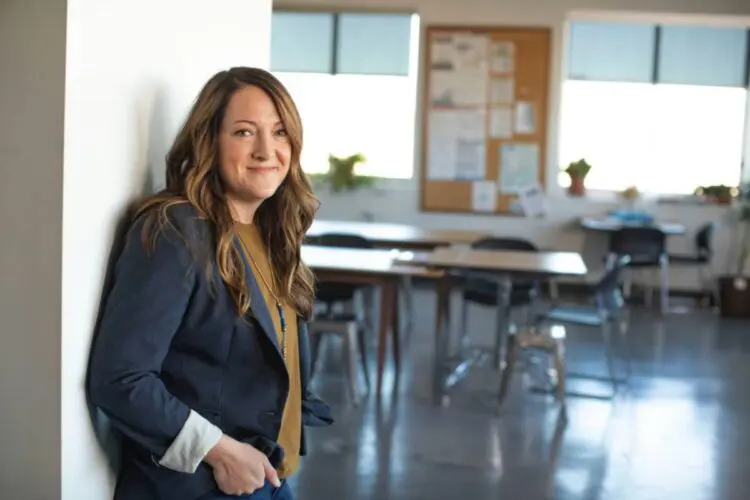School counselors do a lot more than you might realize. They’re not just there to help select classes and sort out friendship squabbles; they also provide holistic support to help your children build confidence, succeed academically, and navigate the emotional rollercoaster that is school. As a parent, understanding the role of a counselor has a few benefits. It can provide you with reassurance about the resources available to your child. It’s also useful for perspective, should you ever need to speak with your child’s school counselor directly.

The Role of School Counselors
What is the role of a school counselor? Well, the role of school counselors has changed over the years. When you were a student, you might remember them more for their vocational guidance, or what we might call career counseling today. However, the modern school counselor’s job involves a much wider variety of responsibilities. They help with study goals; handle drama in social circles; mediate peer-to-peer discussions, and provide essential mental support.
The work is intense, varied, and rewarding. Most school counselors go through years of training to prepare them for it. Many have a Master’s in School Counseling, which is a CACREP-accredited qualification. It teaches them how to support primary, middle, and high school students in both academic and emotional ways. By the time they become a licensed professional guiding your child at school, they’ll have completed around two years of full-time study and gained over 700 hours of practical field experience. So, it’s wise to draw on their extensive expertise to help your child flourish.
Helping Children Stay on Track With Grades
Every child learns differently, and some need a little more encouragement to stay focused. Others might need help with time management or goal setting. Counselors are trained to assist in these areas. If the child’s teacher notices that your child may be struggling, they may ask them if they would like to speak with the counselor. For instance, if a child seems withdrawn and their grades are slipping, the counselor can step in to help.
Depending on the child, that might look like anything from a study plan to a confidence-building conversation. Professional counselors are equipped with the critical thinking skills to make the wisest decisions for the child and the situation. In addition, they know when to suggest testing for learning disabilities.
Counselors also work closely with teachers to implement any changes that may help your child learn better in the classroom. For example, small changes like moving to a quieter seat in class or breaking big tasks into smaller steps are common. They might seem like minor adjustments, but they can have a surprising impact on how your child feels about learning and, subsequently, how well they actually take everything in.

Supporting Feelings and Friendships
Good grades matter, but your child’s safety, happiness, and well-being are priorities. With those elements covered, your child is in a better position to learn. However, school tends to throw all sorts of obstacles into the mix. Factors like stress, bullying, and friendship troubles are all common issues.
Sometimes, children just need a safe space to talk. Counselors can listen without judgment and teach coping tools like deep breathing. If your child struggles with their mental health, a counselor’s crisis intervention skills can make a real difference in moments of intensity.
School counselors are also well-versed in cultural competency and know how to deal with personal, social, and intellectual nuances. This is essential for their work in supporting healthy friendships in a multicultural educational environment. They also teach essential interpersonal skills like kindness, empathy, and teamwork, which carry over far beyond the classroom.
Teaming Up With Your Child’s Counselor
A good counselor appreciates a parent taking an interest and being proactive. They will be happy to share ideas about techniques to help your child thrive, whether it’s building better home routines, easing homework stress, or boosting confidence through something else.
Don’t be afraid to share what’s going on at home if it might affect school life. Factors like moving, family illnesses, relationship stress, or health issues may all play a part in how your child performs at school. The more your child’s counselor knows, the better they can provide support in a kind, understanding, and effective way.
Conclusion
The school counselor is an indispensable cornerstone of the educational environment, serving as a comprehensive advocate for students’ academic, career, and social-emotional development. By providing direct services like individual counseling and classroom guidance, while also collaborating with parents, teachers, and administrators, school counselors create a holistic support system. Ultimately, their presence is vital to fostering a safe, equitable, and nurturing school climate.
Counselors are one of the most caring, helpful, and impactful individuals on your child’s education team. As a parent, taking the time to connect with your child’s counselor can open doors to better communication, smoother school days, and an overall happier learning experience. Do you have an experience with your child’s school counselor that you want to share?
Related Posts:
10 Benefits of Spending Time With Family

Bloom Echo says
This blog post is thoughtful and highly relevant, especially since a counsellor’s role spans academic, emotional, and social support for students.
I particularly appreciated how you highlighted that school counsellors help students set goals, navigate challenges, and bridge connections between home and school, which truly supports whole‑child development. Thanks for shining a light on this often under appreciated role in education!
Bonnie says
Excellent article! I really appreciated the insights on how school counselors support students’ academic and personal growth. The tips are practical and show how important their role is in a child’s success. It is good to know when to reach out them and to be proactive in sharing family hardships.
Sachin says
I agree. The role of a school counselor in a child’s academic journey is often underestimated, but as you’ve highlighted, they play a crucial part in guiding emotional well-being, career planning, and personal growth. Schools that invest in strong counseling services can make a real difference in their students’ success.
True Nest Trail says
Such an important topic. School counselors truly make a huge difference in a child’s confidence and future direction.
Scribora Nest Trail says
A thoughtful and informative blog post that highlights the crucial support school counselors provide for student success.
Daniel says
Really enjoyed this! Hosting can feel overwhelming, especially during the busy holiday season, but your approach makes it seem so manageable. I appreciate how you break down everything from prepping the living room to mapping out the Thanksgiving menu—right down to classics like green bean casserole. It’s the kind of guidance that saves extra trips to the grocery store and helps the whole holiday meal come together smoothly. Perfect inspiration for anyone planning a dinner party this time of year!